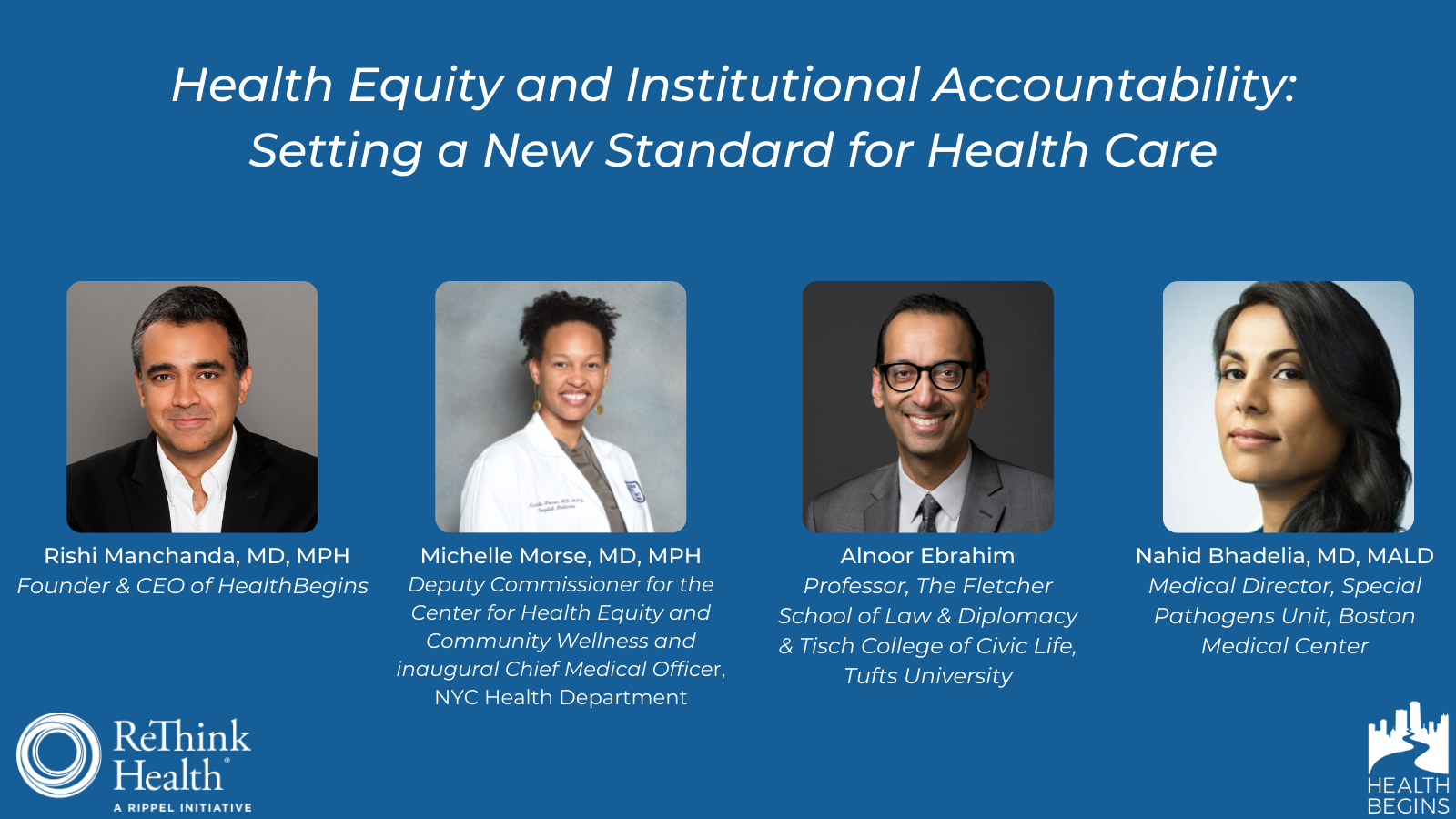As recent events have demonstrated, justice and equity require accountability. But as more healthcare institutions commit to advance racial justice and the social and structural drivers of health equity, how will these institutions be held accountable to achieve these goals? A recent Health Affairs blog by Sophia Tripoli and colleagues noted, “Health equity in particular, and improved population health outcomes more broadly, will depend in part on health care payment and delivery system reforms that focus on holding the health care system accountable for—within its scope—addressing the impact of structural racism on health and the social determinants of health.”
We held a fireside chat with national experts about what it takes to hold healthcare systems accountable for advancing racial justice and improving the social and structural drivers of health equity.
Dr. Michelle Morse joined us to share her work building institutional accountability in health care, as described in her recent Boston Review article, “An Antiracist Agenda for Medicine.” We talked with Professor Alnoor Ebrahim from the Tufts University Fletcher School of Law & Diplomacy about his groundbreaking research on institutional accountability and its implications for health systems as well as multi-sector health equity initiatives. And Dr. Nahid Bhadelia discussed why community-centered governance is so important to health equity and institutional accountability from the perspective of infectious disease treatment, prevention, and policy.
Finally, we introduced five components of institutional accountability needed to transform social and structural drivers of health equity, and shared concrete steps that existing and emerging leaders can take to put them in place.
Host:
HealthBegins
Co-sponsor:
ReThink Health, an initiative of the Rippel Foundation.
Speakers:
- Rishi Manchanda, MD, MPH, Founder & CEO of HealthBegins
- Michelle Morse, MD, MPH, Deputy Commissioner for the Center for Health Equity and Community Wellness and inaugural Chief Medical Officer, NYC Health Department
- Alnoor Ebrahim, Professor, The Fletcher School of Law & Diplomacy & Tisch College of Civic Life, Tufts University
- Nahid Bhadelia, MD, MALD, Medical Director, Special Pathogens Unit, Boston Medical Center
Webinar Objectives:
By the end of the webinar, attendees will be able to:
- Describe, institutional accountability for health care and why it matters to advancing racial justice and improving the social and structural drivers of health equity
- Identify key challenges facing internal and external stakeholders when it comes to holding healthcare institutions accountable for this work
-
List at least two concrete, near-term steps that leaders inside and outside of health care can take to increase accountability for health equity and racial justice
Featured Content
Building Community to Improve Maternal Health: Lessons from Group Prenatal Care
HealthBegins supported health centers across the country to find new ways to make maternal health more equitable and effective. The solution was Group Prenatal Care—a means of fostering community as part of the care—and the outcome was nothing short of inspiring.
Aligning Our Organizational Structure with Our Values
With our new B Corp Certification, HealthBegins has now joined a global network of companies that see business as a force for good and can share tools and practices to help us improve.
5 Principles and Practices to Sustain Gender-Affirming Care in Uncertain Times
With the onslaught of federal threats to transgender and nonbinary people, health care has a critical role to play to uphold standards of care, ensure access to essential services, advocate for evidence-based medicine, and protect patients and providers.




